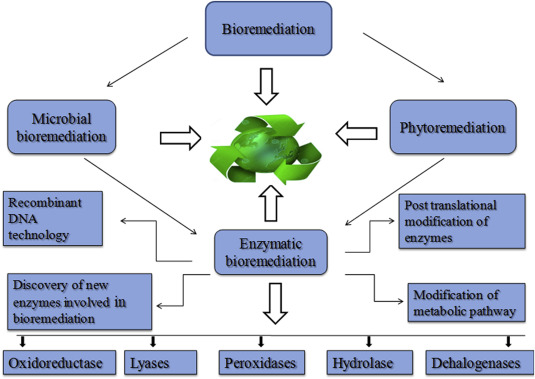EnzymoGenius™ specializes in broadening the enzyme substrate range for bioremediation applications, leveraging innovative technologies to enhance environmental cleanup efforts.
Overview
Expanding the substrate range of enzymes for bioremediation represents a pivotal avenue in contemporary research endeavors. This innovative approach involves the modification of enzymes to enhance their catalytic capabilities, enabling them to target a broader spectrum of pollutants. The research progress in this domain is marked by the exploration of protein engineering techniques, such as directed evolution and rational design, to augment enzyme specificity and efficiency. Additionally, advancements in metagenomics have facilitated the identification of novel enzymes from diverse microbial communities, broadening the substrate repertoire for potential bioremediation applications. This expanding substrate range not only contributes to the remediation of conventional pollutants but also addresses emerging environmental challenges, fostering the sustainable development of enzymatic bioremediation strategies.
 Fig. 1 Enzyme-based technologies for bioremediation. (Sharma B, et al., 2018)
Fig. 1 Enzyme-based technologies for bioremediation. (Sharma B, et al., 2018)
Our Services
- Enzyme Substrate Optimization
Tailoring enzymes to effectively target and degrade a wider array of contaminants.
- Metabolic Pathway Engineering
Modifying microbial pathways to optimize enzymatic activity and increase substrate specificity.
- Biological Compatibility Assessment
Evaluating the compatibility of enzyme-substrate combinations in diverse environmental conditions.
- In-situ Remediation Strategies
Implementing on-site solutions for efficient and sustainable bioremediation efforts.
Leading Technologies
- Computational Modeling
Harness the power of advanced computational tools to predict and analyze the impact of active site mutations on substrate binding.
- Directed Evolution Techniques
Employing directed evolution to enhance enzyme performance, allowing for targeted substrate expansion.
- Genetic Engineering Expertise
Leveraging genetic engineering to manipulate microbial consortia and enhance enzymatic capabilities.
- Metagenomic Approaches
Utilizing metagenomics to explore microbial diversity and identify novel enzymes for substrate expansion.
- High-Throughput Screening
Implementing high-throughput screening methods to rapidly identify enzyme-substrate pairs with enhanced bioremediation potential.
Application Areas We Can Serve
- Pharmaceutical Residue Degradation
Investigating enzymatic pathways for the degradation of pharmaceutical residues in water systems.
- Plastic Waste Biodegradation
Exploring enzymes capable of degrading complex polymers to address the issue of plastic pollution.
- Petrochemical Contaminant Removal
Developing strategies for the enzymatic breakdown of hydrocarbons in contaminated environments.
- Heavy Metal Remediation
Studying enzymes with the potential to sequester or transform heavy metals for environmental detoxification.
EnzymoGenius™ provides a comprehensive suite of services encompassing enzyme substrate optimization, metabolic pathway engineering, biological compatibility assessment, and in-situ remediation strategies. Our leading-edge technologies, including directed evolution, genetic engineering, metagenomics, and high-throughput screening, empower us to tackle research topics such as pharmaceutical residue degradation, plastic waste biodegradation, petrochemical contaminant removal, and heavy metal remediation. If you are interested in our services or need more detailed information, please feel free to contact us.
Reference
- Sharma, B.; et al. Contemporary enzyme based technologies for bioremediation: A review. Journal of Environmental Management. 2018, 210: 10-22.

































 Fig. 1 Enzyme-based technologies for bioremediation. (Sharma B, et al., 2018)
Fig. 1 Enzyme-based technologies for bioremediation. (Sharma B, et al., 2018)